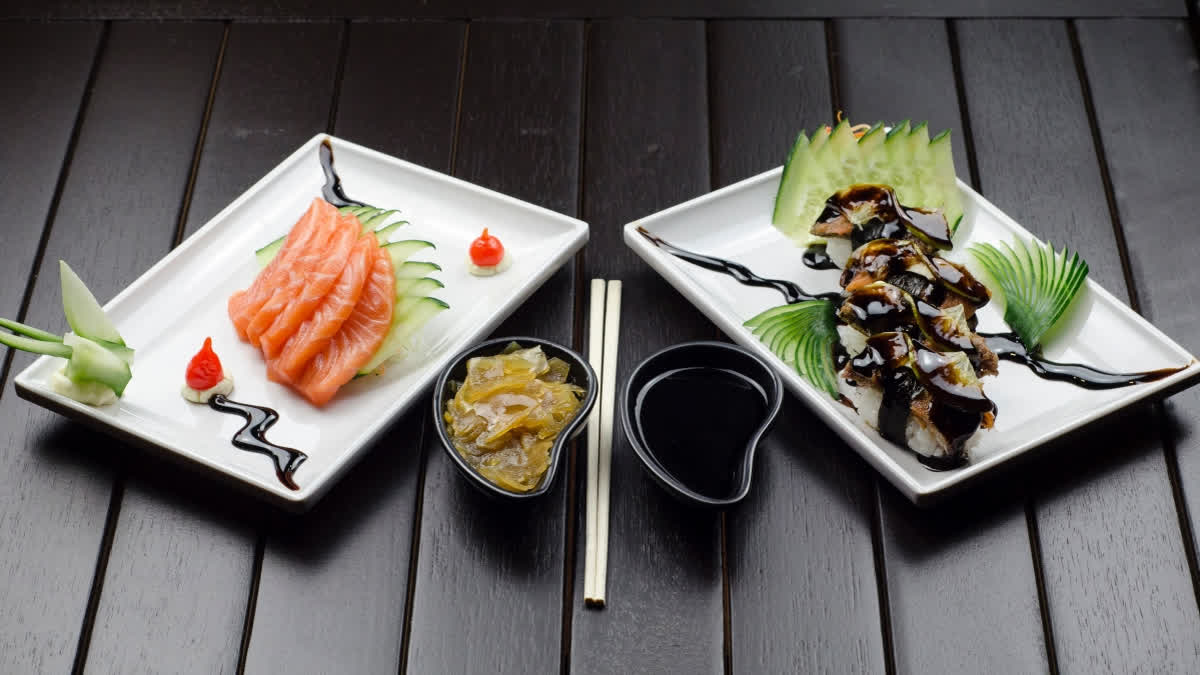Hyderabad: According to a recent study, following a Japanese diet can help slow down the progression of Non-Alcoholic Fatty Liver Disease (NAFLD) in people. The study published in MDPI suggested that a diet consisting of Japanese cuisine containing soy foods, seafood and seaweed was able to slow down the progression of fibrosis in the liver. In this study, researchers studied 136 people with NAFLD at the Osaka Metropolitan University Hospital in Japan.
According to the study, the participants were given a Japanese diet box with 12 components. In this 12-component Japanese diet box, 12 types of foods eaten in the Japanese diet were included. These included rice, miso soup, pickles, soy products, green and yellow vegetables, fruits, seafood, mushrooms, seaweed, green tea, coffee, beef, and pork. The research evaluation found that participants who consumed higher amounts of soy, seafood, and seaweed had a slower progression of liver fibrosis with non-alcoholic fatty liver disease while building muscle mass.
Apart from this, the health benefits of the Japanese diet have also been confirmed in many other pieces of research. Nowadays, the Japanese diet is becoming quite trendy all over the world. Sushi, miso soup, vegetable pickles, foods made of tofu, Japanese-style fish and other Japanese foods are very much liked all over the world. Due to the trend of the Japanese diet, its benefits for health along with the taste are also considered.
Japanese people are said to live longer, which is attributed to their very active lifestyle and diet and dietary practices. According to a 2019 life expectancy report Japanese people live longer than most in the world. According to those statistics, the age of about 23 lakh people in Japan was beyond 90 years, while the age of more than 71,000 thousand people was found to be more than 100 years.
Dr Divya Sharma, a dietitian from New Delhi, and Manav Bijlani, a Chef of Japanese Cuisine from Mumbai, explain more about Japanese Cuisine and its health benefits. Chef Manav Bijlani explains that the Japanese diet, especially the foods they consume daily, is simple, fresh and balanced according to taste. A lot of vegetables are used in different ways in their diet and special care is taken to cook them.
Be it vegetarian or non-vegetarian food, mostly fresh ingredients are used in Japanese cuisine, and they are mostly used after boiling, steaming, grilling or roasting, which retains their nutritional elements. Their diet mostly includes products like seafood, seaweed, soybean and its products, fermented food, vegetables, and special types of rice and tea (green tea). But meat, sugar, potatoes and dairy products are used less in the Japanese diet.
He explains that not just the diet, but also their discipline towards food helps them to stay healthy. They eat their food in small portions and follow the rule of "Hara hachi bun me" while eating, where they eat only until their stomach is 80 per cent full, and stop eating after that. This rule helps them manage their weight as well.
Dr Divya Sharma tells that the Japanese diet is balanced. She explains that the regular diet of any region should always be according to the country's time and situation because the diet provides benefits according to the weather, environment and availability of all types of ingredients.
Also read: Low vitamin D levels can increase long Covid risk: Study
She explains that both, the food served in Japanese cuisine and the method of its preparation are very beneficial for health. Seafood, soy and soup made from it, tofu and other types of foods, seaweed, fresh vegetables and pickles and fermented foods made from them are full of nutrition and very beneficial for health in many ways. The foods used mostly in the Japanese diet and some of their benefits are as follows;
Seafood:
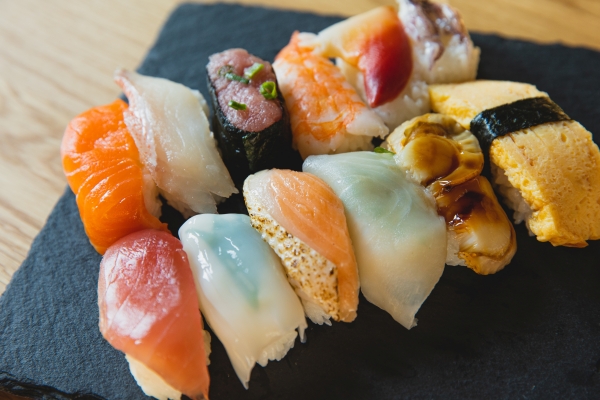
Omega-3 fatty acids, vitamins such as D and B2 (riboflavin), calcium and minerals such as phosphorus, iron, zinc, iodine, magnesium and potassium are found in abundance in seafood, especially in fish.
Seaweed:
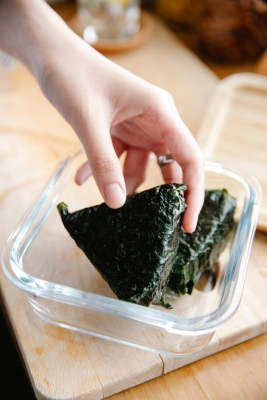
It is considered to be a significant part of the Japanese diet and also comes under the wonder food category. It also contains plenty of minerals, vitamins B12 and K, and omega-3 fatty acids.
Soybean:
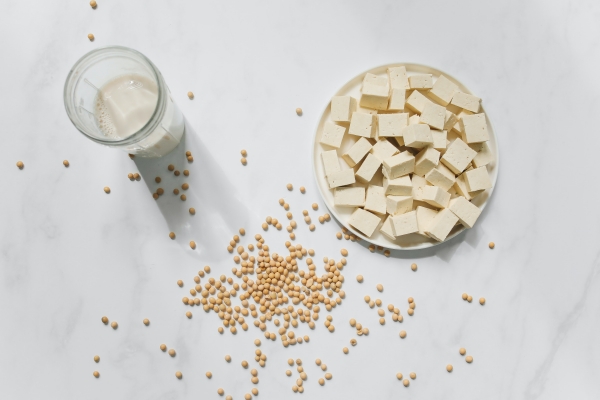
Soybean is also used a lot in the Japanese diet. Soy milk, cheese made from soy (tofu), and soup (miso soup) are widely used in their diet instead of normal dairy products. Fibre plant protein, vitamins B6, B12, calcium, magnesium, potassium and Iron and all types of amino acids necessary for a healthy body are abundant in soybean.
Fermented foods:

Fermented foods are used regularly in the Japanese diet. A fermented diet not only helps in keeping the Gut healthy but also helps in maintaining overall health, and the formation of good bacteria. Due to this problems such as constipation, gas, indigestion and acidity are reduced. They contain lactic acid which keeps the intestines to stay healthy. By consuming this type of diet, weight decreases, the metabolism remains healthy and the immune system also stays strong. It eases vitamin B12 deficiency.
Green Tea:
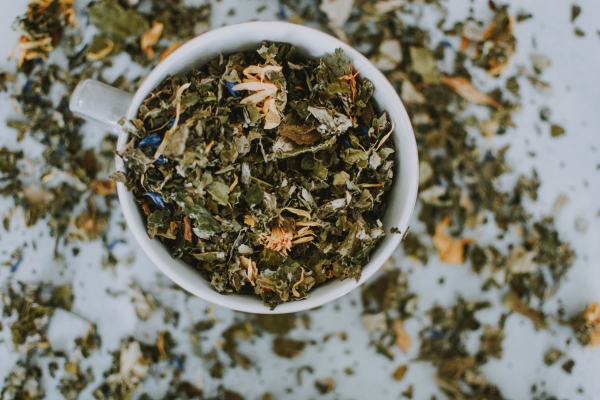
Green tea is also a special part of Japanese cuisine. They consume green tea made from different types of flowers, fruits and medicinal roots. Significantly, antioxidant properties are found in abundance in green tea, as well as the properties of its basic substances also benefit health in many ways. Green tea helps in relieving stress, keeping the mind calm and happy, keeping digestion healthy, reducing the effects of skin ageing and keeping it young, as well as maintaining heart health and overall health.
Dr Divya says that all these foods not just help in controlling blood pressure and cholesterol, but also keep the heart and brain healthy. Consuming this type of diet in the right quantity improves immunity in the body, strengthens metabolism and digestive system, relieves stress, keeps skin and hair healthy and improves memory. And when a person remains healthy, then their age also increases.
